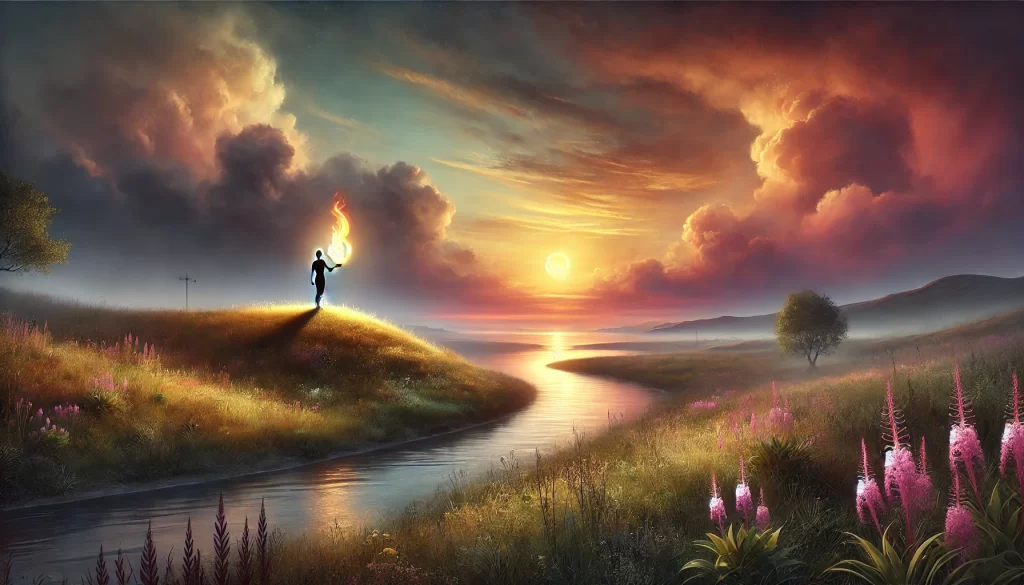
Justin Trudeau resigned on Monday.
For some, this marks the beginning of clarity, a chance for the fog that has clouded Canada’s political landscape to lift. But for me, it feels as though the haze has only thickened. The unity we so desperately need remains elusive. Block voting will once again dictate the course of the next election, perpetuating a system that fractures rather than unites. Divisions within our population are not healing; they are deepening, carving fault lines that grow harder to bridge. Meanwhile, Canada continues to waver, hesitant to push back or take a resolute stand against the currents of influence shaping global narratives. It is a pivotal moment, not just for leadership, but for our collective direction, and yet it feels as though we are still searching for the compass.
There are moments when the world feels heavier than it should. When the simple act of reflection unearths a quiet weight, a sense that something foundational is shifting. It’s not a singular event or a headline that sparks this feeling – it’s an accumulation, an awareness that we may be on a path we don’t fully understand but can no longer ignore.
What worries me is the fragility of it all. The sense that what we hold dear – our communities, our values, our freedoms – exists on a delicate thread, vulnerable to forces that feel beyond our control. What worries me more is how easily we’ve become distracted from this reality. It’s not that we don’t care; it’s that we’ve been taught to care in fragments – measured by the length of a headline, the urgency of a notification, or the scroll of a timeline.
These distractions are not always accidental. Often, they are engineered, designed to pull us away from the uncomfortable truths we might otherwise confront. Truths about inequality, about the erosion of democratic principles, about the suffering that persists in the world while our collective attention wanes.
And then there’s the fire that I feel in my heart and belly, a relentless energy sparked by my discomfort with developments that do not sit well with me – from the recognition of what I believe is wrong and the yearning for what could be right.
It’s an unrelenting fire, ignited by the clarity of what’s broken and the vision of what could be whole. At first, it flickers quietly, an ember of unease. But as it grows, it becomes harder to contain. It’s a fire ignited by the patterns we seem destined to repeat, by the hollowing of communities as self-interest takes precedence, by the indifference of those in power when their actions hold the weight of so many lives.
But this fire, while a source of energy, is inherently unstable. It has the power to illuminate and inspire, but it also has the potential to scorch and consume. Without direction, it can burn indiscriminately, consuming the very motivation needed to build and cross the bridges essential for progress. And we’ve seen too often what happens when unchecked emotions take the lead – division deepens, trust erodes, and solutions remain out of reach.
So the question becomes: What now? What do I/we do with this weight, this worry, this unrelenting sense of urgency to act?
The answer is neither simple nor easy. But it begins with grace – not as passive acceptance, but as an active choice to engage with the world differently. Grace allows us to hold opposing truths: that the situation is dire and that we are still capable of doing something about it. It tempers fire with reflection, urgency with thoughtfulness, and despair with resolve. Grace doesn’t extinguish the flames, it shapes them into a beacon.
This is not a call to quiet compliance or to wait patiently for change. Quite the opposite. It’s a call to balance. To lead with love while acting with urgency. To listen even when it’s uncomfortable, to step into difficult spaces with both courage and humility. It’s about recognizing that waiting for someone else to act is not an option.
We are living in a moment that demands more from us. More clarity, more engagement, more willingness to see beyond ourselves. This isn’t easy in a world where the tools of distraction are omnipresent, where fear is leveraged to divide, and where the scale of the issues can feel overwhelming. But it is necessary.
To worry is human. To act on that worry is leadership. It requires us to rise above the noise and focus on what matters most – our collective ability to shape a future that reflects our highest values, not our darkest fears. It demands that we hold ourselves accountable for the kind of society we want to live in, not just for today but for generations to come.
There is no roadmap for this. There is only the conviction that we cannot wait. There is only the willingness to do something – anything that we can, anything that we should – that moves us closer to a world that feels just, equitable, and resilient. It’s about choosing grace, not as an antidote to fire, but as its partner. Together, they can spark not just reaction, but transformation.
And if we choose this path, perhaps the weight will remain, but it will no longer paralyze us. It will propel us forward.